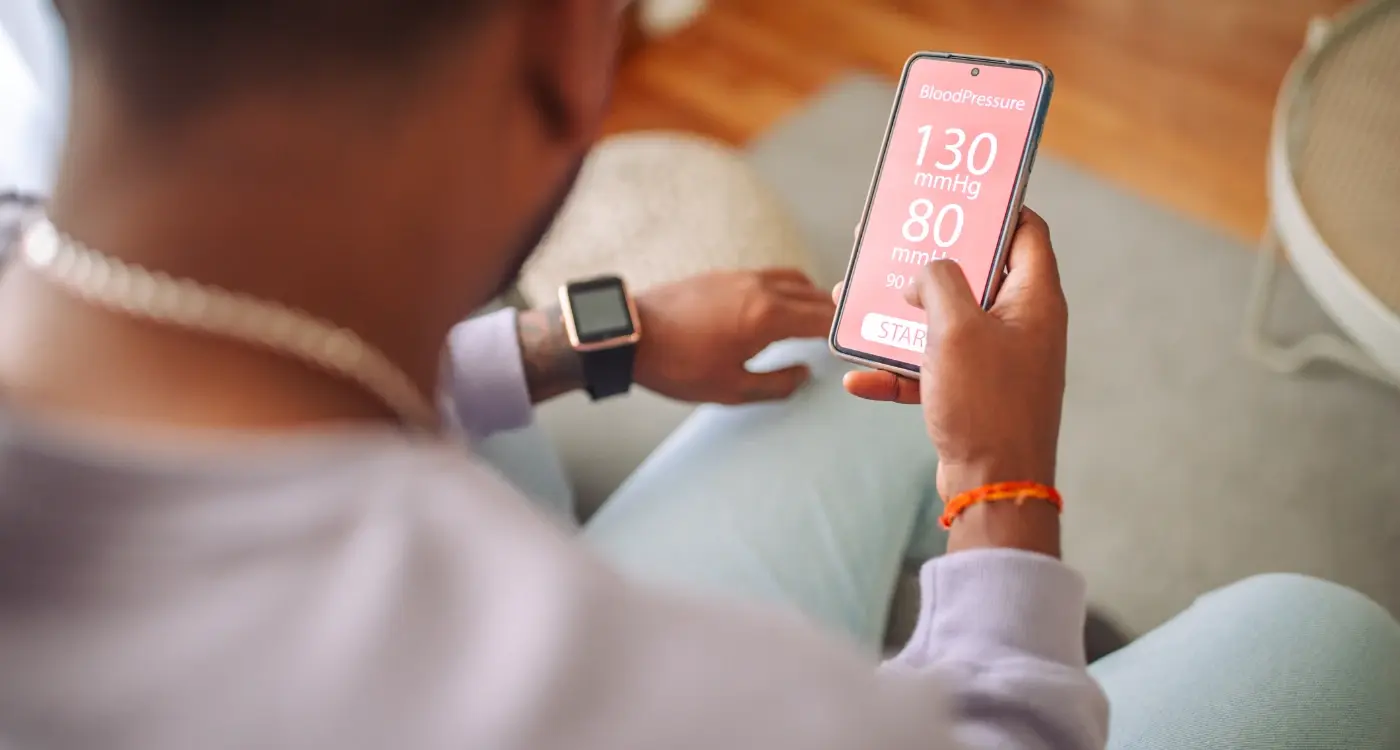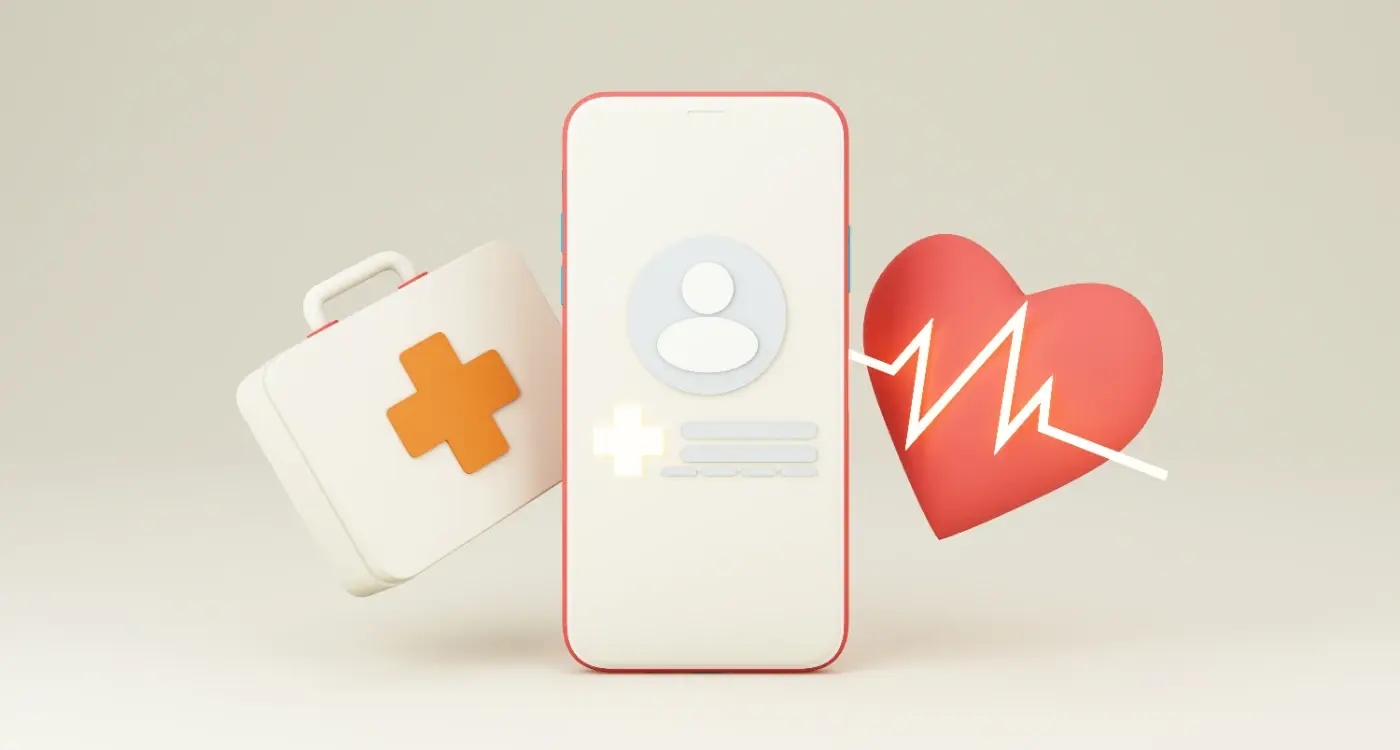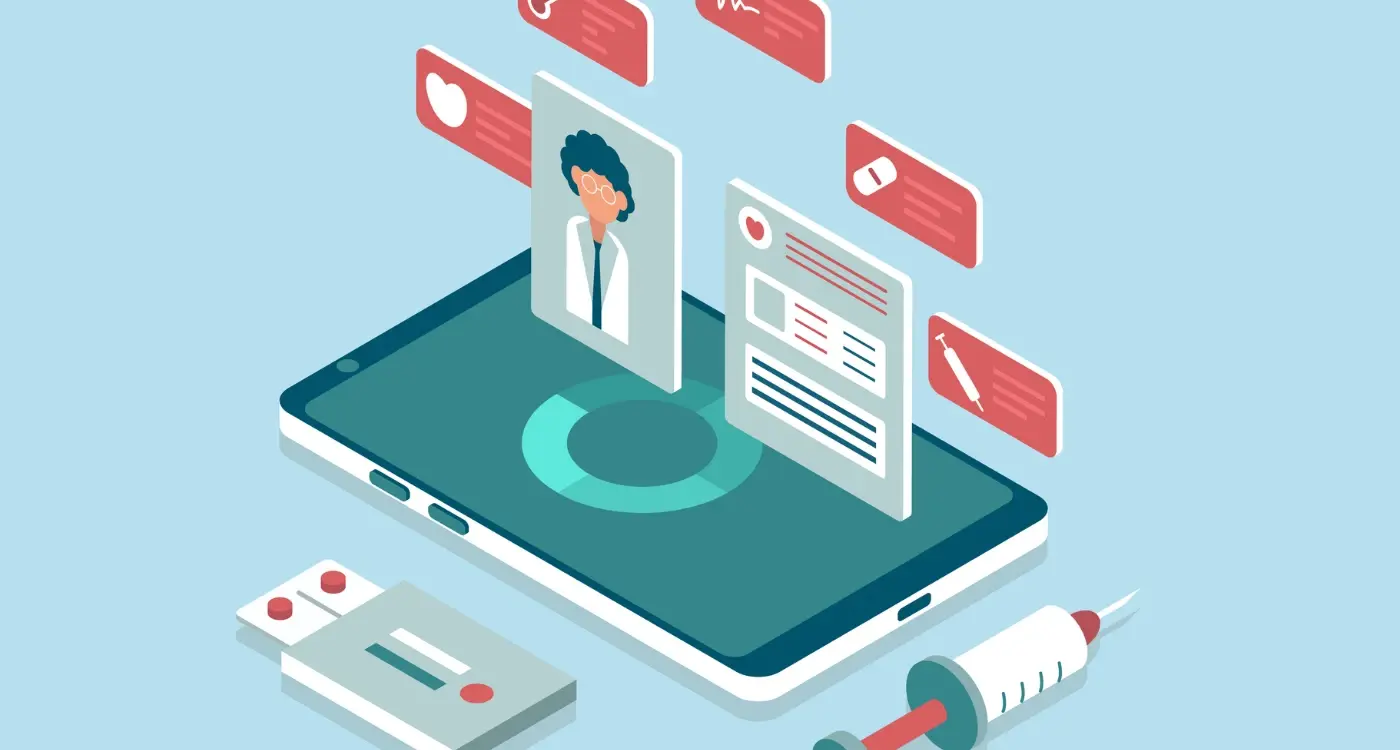What Regulations Must Your Mobile Health App Comply With?
Developing a healthcare app can feel like navigating through a complex maze of regulations and standards. As more healthcare providers and innovators turn to mobile solutions, understanding the compliance landscape has become crucial for success in the UK market.
The journey to creating a compliant health app isn't just about ticking boxes - it's about building trust with patients and healthcare professionals whilst delivering meaningful digital innovations that improve lives.
Whether you're planning to develop a simple wellness tracker or a sophisticated medical diagnostic tool, you'll need to navigate various regulatory frameworks, from GDPR health apps requirements to NHS digital standards. It's rather like building a house - you need solid foundations (data protection), sturdy walls (security standards), and a sound roof (clinical validation) to create something safe and reliable.
As healthcare app development continues to evolve in the UK, we've seen numerous success stories of apps that have successfully balanced innovation with compliance. These range from NHS-approved mental health platforms to breakthrough medical monitoring solutions that have transformed patient care.
In this comprehensive guide, we'll walk you through the essential regulations and standards your health app must meet. We'll explore everything from basic data protection rules to specific NHS requirements, helping you understand how to handle patient data responsibly while meeting all necessary security standards. Whether you're a healthcare professional with an innovative idea or a tech entrepreneur entering the health sector, this guide will help you navigate the regulatory landscape with confidence.
What Are the Key Healthcare App Regulations in the UK?
Developing a healthcare app in the UK can feel like navigating through a complex maze of regulations. We understand - our team has guided countless healthcare providers through this journey, and we're here to help make sense of the key requirements.
Essential UK Healthcare App Regulations
At the core of UK healthcare app compliance lies the Medical Device Regulations (UK MDR). Think of this as your app's Highway Code - it determines whether your application qualifies as a medical device and what standards you'll need to meet. If your app helps diagnose, monitor, or treat medical conditions, it likely falls under these regulations.
The Medicines and Healthcare products Regulatory Agency (MHRA) oversees these regulations. They're a bit like the 'traffic wardens' of the healthcare app world, ensuring everything follows the rules. Depending on your app's risk classification (from Class I to Class III), you'll need different levels of certification.
CE Marking and UKCA Requirements
Post-Brexit, healthcare apps need the UKCA (UK Conformity Assessed) mark to show they meet UK safety standards - similar to how food products need their safety stamps. For apps targeting both UK and EU markets, you'll need both UKCA and CE marking. It might seem like double the paperwork, but it's crucial for maintaining trust and ensuring patient safety.
Remember those old Nokia phones that seemed indestructible? Well, your healthcare app needs to be even more robust - not physically, but in terms of reliability and safety. That's why these regulations exist: to protect patients while fostering innovation in digital healthcare.
How Does GDPR Impact Your Health App Development?
When developing a health app in the UK, GDPR compliance isn't just another box to tick - it's absolutely fundamental to your app's success and legality. We've seen many brilliant healthcare solutions struggle simply because they didn't consider data protection from day one.
Key GDPR Requirements for Health Apps
Health data is considered 'special category data' under GDPR, requiring extra protection. Your app must have explicit consent mechanisms for data collection, clear privacy notices, and robust data processing agreements. Think of it like a doctor's confidentiality agreement, but for the digital age.
Another crucial aspect is data minimisation - only collecting what's absolutely necessary. For instance, if your app tracks daily steps, do you really need to know the user's full medical history? Probably not.
Practical Implementation
When building health apps that comply with GDPR, you'll need to implement features like:
- Easy-to-use data export tools - Clear consent withdrawal options - Transparent privacy settings - Secure data storage with encryption - Data breach notification systems
Always design your app's data protection features with the most vulnerable users in mind. If an elderly person can easily understand and control their privacy settings, you're on the right track.
Remember that GDPR compliance isn't a one-time achievement - it's an ongoing process. Regular audits, updates, and staff training are essential parts of maintaining compliance, especially as healthcare app development continues to evolve.
Understanding NHS Digital Standards and Requirements
When developing a healthcare app for the UK market, meeting NHS Digital standards isn't just a box-ticking exercise - it's about ensuring your app can safely and effectively support patient care. We know it can feel overwhelming at first, rather like trying to solve a complex puzzle, but let's break it down into manageable pieces.
The NHS Digital Assessment Process
The NHS Digital Assessment Questionnaire (DAQ) is your roadmap to compliance. Think of it as a thorough health check-up for your app. The questionnaire covers essential areas like clinical safety, data protection, technical stability, and usability. Just as you'd want your GP to be thorough during a check-up, the NHS needs to ensure your app meets all necessary standards.
Key Technical Requirements
Your app must demonstrate interoperability with NHS systems, much like how your mobile phone needs to work with different networks. This includes following the NHS Digital Technology Assessment Criteria (DTAC) and implementing appropriate NHS login integration where required. The standards also emphasise accessibility - your app should be usable by everyone, regardless of their technical ability or any disabilities they may have.
Documentation is crucial too. Just as a recipe needs clear instructions, your app needs comprehensive technical documentation, including API specifications and system architecture details. You'll also need to show evidence of regular testing and updates, proving your commitment to maintaining high standards over time.
Remember, these standards aren't barriers - they're safeguards ensuring your app can be a valuable part of the NHS digital ecosystem. Think of them as your quality assurance toolkit, helping you build something that healthcare professionals and patients can trust.
Which Data Protection Rules Apply to Health Apps?
When developing healthcare apps, data protection isn't just a box-ticking exercise – it's about protecting real people's most sensitive information. Think about it: your users are trusting you with details about their health conditions, medications, and personal lives.
Healthcare data protection is not about compliance alone; it's about maintaining the sacred trust between healthcare providers and patients in the digital age
Core Data Protection Requirements
In the UK, health app development must comply with several key data protection frameworks. The GDPR health apps requirements form the foundation, requiring explicit consent for data processing, the right to data portability, and strict breach notification protocols. If you're handling NHS patient data, you'll also need to align with NHS digital standards for data security.
Essential Safeguards for Health Data
Your health app must implement appropriate technical safeguards, including end-to-end encryption, secure authentication, and regular security audits. It's similar to how your local GP surgery protects patient records, but in the digital realm. Remember that health data should only be collected on a 'need-to-know' basis – just because you can collect certain information doesn't mean you should.
Special considerations apply when handling sensitive medical data, such as mental health records or genetic information. You'll need to conduct regular Data Protection Impact Assessments (DPIAs) and ensure your app includes features for users to easily access, modify, or delete their data – rather like having a digital filing cabinet where patients maintain control of their own records.
What Security Standards Must Your Medical App Meet?
When it comes to healthcare apps, security isn't just a nice-to-have feature - it's an absolute necessity. Think of it like building a fortress to protect your patients' most personal information. We understand how overwhelming all the security requirements can feel when you're eager to bring your health app to life.
Essential Security Standards
First and foremost, your health app must implement robust encryption standards. The NHS requires AES-256 encryption as a minimum for all patient data, both in transit and at rest. This is like having an unbreakable secret code that only authorised users can decipher.
You'll also need to incorporate secure authentication methods. Two-factor authentication (2FA) is becoming the norm, much like how your bank requires both your card and PIN for transactions. For healthcare professionals accessing sensitive patient data, biometric authentication adds an extra layer of security.
Ongoing Security Measures
Security isn't a one-and-done task - it requires constant vigilance. Your app needs regular security audits and penetration testing to identify potential vulnerabilities. Think of it as giving your app a regular health check-up! You'll need to maintain detailed audit trails of all data access and implement automatic timeout features for inactive sessions.
Remember to build in secure backup systems and disaster recovery protocols. Just as hospitals have backup generators for power outages, your app needs robust backup systems to ensure patient data is never lost or compromised. Regular security updates and patch management are also crucial - rather like keeping your immune system strong to ward off potential threats.
These security measures might seem daunting, but they're essential for protecting patient trust and ensuring compliance with NHS Digital standards and GDPR requirements.
How to Handle Patient Data and Records Properly
When it comes to healthcare app development, handling patient data is perhaps the most crucial aspect you'll need to get right. Think of it like keeping a diary that contains your most personal secrets - except this diary needs industrial-strength security and careful management.
Essential Patient Data Handling Requirements
Patient records require exceptional care in their collection, storage, and processing. Under GDPR health apps must ensure data is processed lawfully, transparently, and for specific purposes only. Remember, we're dealing with people's most sensitive information - from medical histories to current treatments.
- Collect only the data you absolutely need
- Implement role-based access controls
- Use NHS-approved encryption standards
- Maintain detailed audit trails
- Enable patient access to their own records
Working with various NHS trusts, we've learned that successful patient data handling isn't just about following rules - it's about building trust. Your users need to feel confident their sensitive information is as safe as it would be in their GP's filing cabinet.
Always implement a 'privacy by design' approach from day one - it's much easier than retrofitting privacy features later!
Data Retention and Disposal
Just like the NHS digital standards require, you'll need clear policies on how long you keep different types of patient data and how you safely dispose of it. Think of it as a digital spring clean - but one where you need to document every step and ensure nothing valuable accidentally gets binned.
Remember, proper data handling isn't just about compliance - it's about respecting and protecting the people who trust your app with their most personal information.
Which Testing and Validation Steps Are Required?
Testing a healthcare app isn't quite the same as testing your average mobile application. When you're dealing with people's health data and potentially life-impacting features, the stakes are considerably higher. We understand this can feel overwhelming, but let's break down the essential testing steps you'll need to consider.
Core Testing Requirements
Think of healthcare app testing as being similar to testing a new car - you wouldn't just check if it starts, you'd want to ensure every safety feature works perfectly. The same principle applies here.
- Clinical Safety Testing - Ensuring all medical information and calculations are accurate
- Security Testing - Comprehensive penetration testing and vulnerability assessments
- GDPR Compliance Testing - Verifying all data handling meets regulatory requirements
- User Acceptance Testing - Including both healthcare professionals and patients
- Integration Testing - Checking compatibility with NHS systems and third-party services
- Accessibility Testing - Ensuring the app works for users with different abilities
- Performance Testing - Verifying the app works efficiently under various conditions
Documentation Requirements
Beyond the actual testing, you'll need to maintain detailed documentation of your testing procedures. This isn't just bureaucratic box-ticking - it's essential for NHS Digital approval and helps protect both you and your users. Think of it as creating a paper trail that demonstrates your commitment to safety and quality.
Remember, testing isn't a one-and-done process. Healthcare apps require ongoing validation and regular security updates to maintain compliance. Consider it more of a continuous journey than a destination.
What Makes a Health App NHS-Approved?
The NHS Apps Library is more than just a collection of applications - it's a seal of trust that tells patients their health data is in safe hands
Getting your health app NHS-approved might seem like climbing Mount Everest, but breaking it down into manageable steps makes the journey much clearer. The NHS Digital Standards are your compass in this adventure, guiding you towards creating a trustworthy healthcare app that puts patient safety first.
Core NHS Digital Assessment Requirements
To achieve NHS approval, your healthcare app development must tick several crucial boxes. Clinical safety is paramount - you'll need to demonstrate that your app won't harm patients and follows the DCB0129 clinical risk management standards. Think of it like getting a MOT for your car, but with much higher stakes.
Data protection is another cornerstone. Your app must comply with GDPR health apps requirements and show robust security measures. The NHS expects clear evidence of how you'll protect sensitive patient data, including regular security testing and breach prevention protocols.
Technical and Usability Standards
The NHS digital standards also focus heavily on accessibility and user experience. Your app should be usable by everyone, including those with disabilities or limited tech experience. You'll need to prove your app has been thoroughly tested with real users and meets the NHS service standard.
Remember, NHS approval isn't a one-time achievement. It's an ongoing commitment to maintaining high standards and responding to user feedback. Many successful health apps in the NHS Apps Library started small and gradually built their compliance framework, showing that with the right approach and patience, NHS approval is absolutely achievable.
Real-World Examples: UK Health App Success Stories
Looking at successful health apps in the UK market can provide valuable insights into what makes a compliant, user-friendly digital health solution. Let's explore some inspiring examples that have successfully navigated the complex regulatory landscape whilst delivering genuine value to patients.
NHS App: The Gold Standard
The NHS App stands as a shining example of regulatory compliance done right. It allows patients to access their health records, book appointments, and order prescriptions while maintaining the highest standards of data protection. The app successfully implemented NHS login verification, ensuring secure access whilst remaining user-friendly - a balance that many healthcare apps struggle to achieve.
Notable Independent Success Stories
Echo, a medication management app, worked closely with NHS Digital to ensure compliance with all necessary regulations. They particularly excelled in implementing GDPR requirements for handling prescription data, creating a secure system that both pharmacies and patients could trust. Their careful attention to privacy requirements whilst maintaining usability led to their eventual acquisition by McKesson UK.
Another brilliant example is Babylon Health, which revolutionised GP consultations through video appointments. They demonstrated how to properly handle patient records across multiple NHS trusts while maintaining strict data protection standards. Their success came from early collaboration with regulatory bodies and extensive testing with NHS Digital.
These success stories share common threads: thorough understanding of regulations, early engagement with NHS Digital, robust data protection measures, and a patient-first approach to design. They prove that while the regulatory landscape might seem daunting, it's entirely possible to create successful, compliant healthcare apps that truly serve their users' needs.
Conclusion
Navigating the complex world of healthcare app regulations and compliance can feel overwhelming at first. From NHS digital standards to GDPR requirements, there's quite a lot to consider when developing a health app in the UK. However, these regulations exist for good reason - to protect patients and ensure the highest quality of digital healthcare services.
Throughout this guide, we've explored the essential requirements for health app compliance, from understanding GDPR's impact on patient data handling to meeting strict NHS digital standards. We've seen how successful UK health apps have managed to balance innovative features with robust security measures and proper data protection protocols.
Remember, compliance isn't just about ticking boxes - it's about building trust with your users. When patients download your healthcare app, they're placing their sensitive medical information in your hands. That's why following these regulations isn't merely a legal obligation; it's a commitment to providing safe, reliable digital health solutions.
Whether you're developing a simple wellness tracker or a complex medical management system, staying informed about healthcare app regulations is crucial. The UK's health tech sector continues to grow and evolve, with new guidelines and requirements emerging regularly. By maintaining a proactive approach to compliance and keeping patient safety at the heart of your development process, you'll be well-positioned to create a successful, trusted healthcare app that truly makes a difference in people's lives.
Share this
Subscribe To Our Learning Centre
You May Also Like
These Related Guides

What’s the Difference Between a Wellness App and a Medical App?

Do I Need FDA or MHRA Approval For My Healthcare App?



